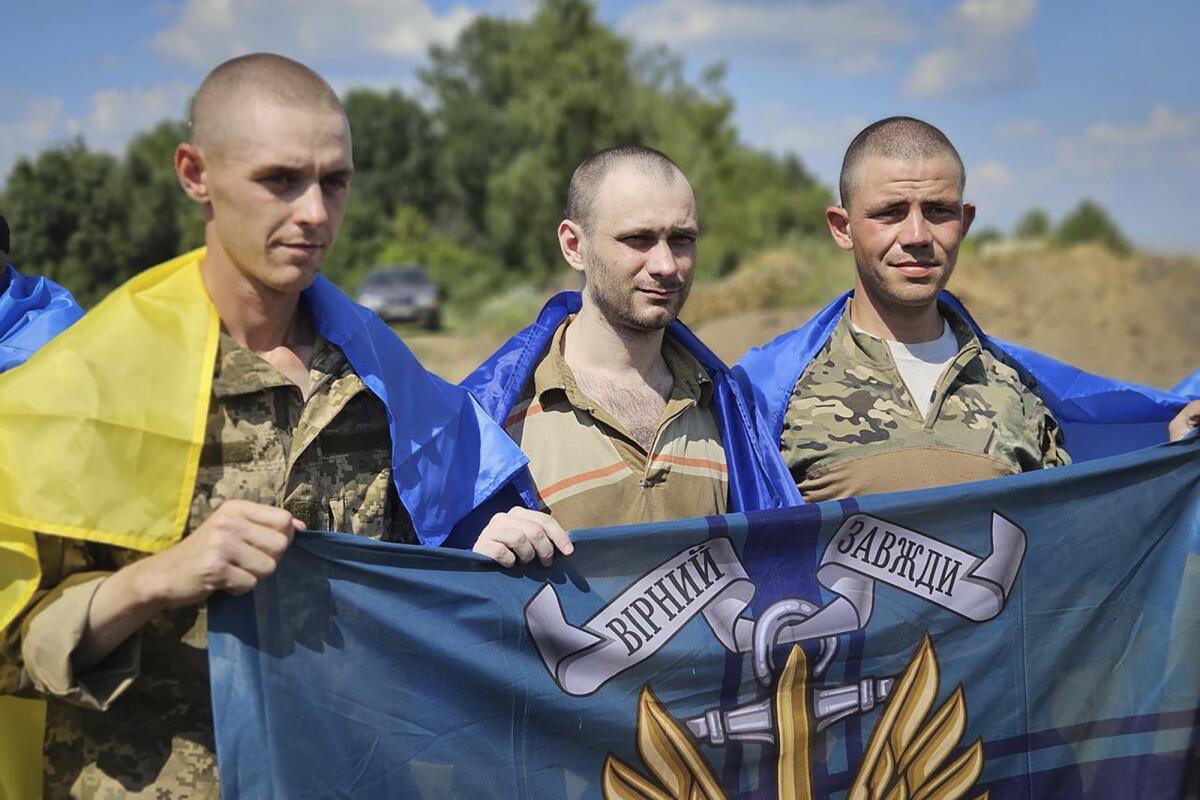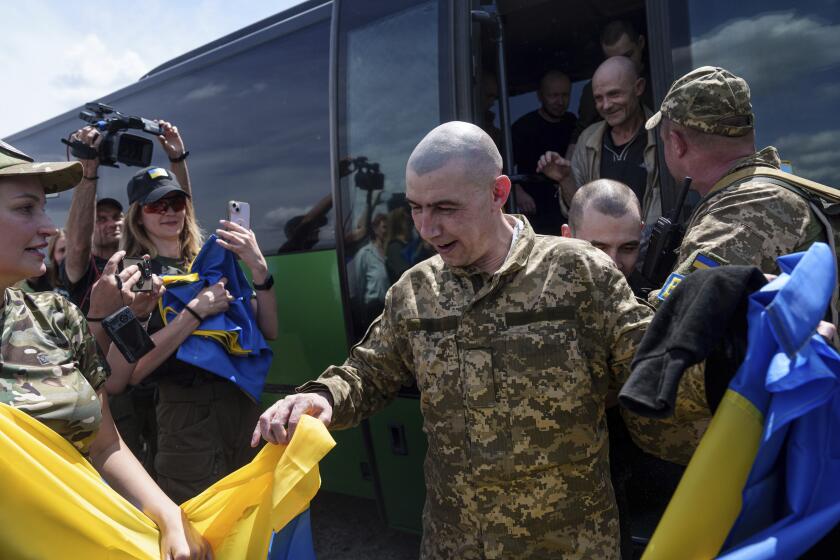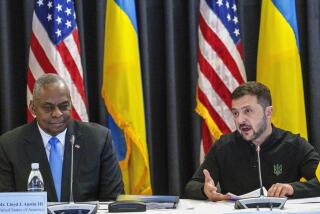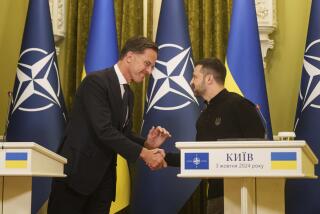Russia and Ukraine give up 95 prisoners of war each in their latest exchange

KYIV, Ukraine — Ukraine and Russia exchanged 95 prisoners of war each, officials in both countries said Wednesday, three weeks after their last swap and as part of what have been occasional agreements to send captured troops home.
Ukrainian President Volodymyr Zelensky and the Russian Defense Ministry reported the exchange.
The POW swap was the 54th since Russia launched a full-scale invasion of its neighbor in February 2022.
Officials from the warring countries meet only when they swap their dead and POWs, after lengthy preparation and diplomacy. Neither Ukraine nor Russia discloses how many POWs there are in total.
Zelensky said in a post on the Telegram messaging service that the United Arab Emirates had again brokered the agreements. The UAE has said it maintains friendly relations with both Moscow and Kyiv.
Zelensky posted photos of mostly gaunt servicemen with shaved heads and wrapped in Ukrainian flags standing in what appeared to be an open area of countryside.
Ukraine and Russia have exchanged prisoners of war, each sending back 75 POWs in the first such swap in the last three months.
“No matter how difficult it may be, we are looking for everyone who may be in captivity. We have to return everyone,” Zelensky wrote in the post.
Among the released Ukrainians were some who had spent more than two years in captivity. They were captured in Mariupol, during Russia’s early offensive in the Kyiv region and battles in the eastern Luhansk region, the country’s Coordination Headquarters for POWs said.
It said just over 3,400 people, both civilians and military, have returned from Russian captivity since the outbreak of the war.
The Russian Defense Ministry said the freed Russian soldiers will be flown to Moscow for medical treatment and rehabilitation.
According to the United Nations, Ukrainian POWs routinely suffer medical neglect, severe and systematic mistreatment, and even torture while in detention. There have also been isolated reports of abuse of Russian soldiers, mostly during capture or transit to internment sites.
Last January, Russia and Ukraine exchanged hundreds of prisoners of war in the biggest single release of captives.
Arhirova writes for the Associated Press.
More to Read
Sign up for Essential California
The most important California stories and recommendations in your inbox every morning.
You may occasionally receive promotional content from the Los Angeles Times.











